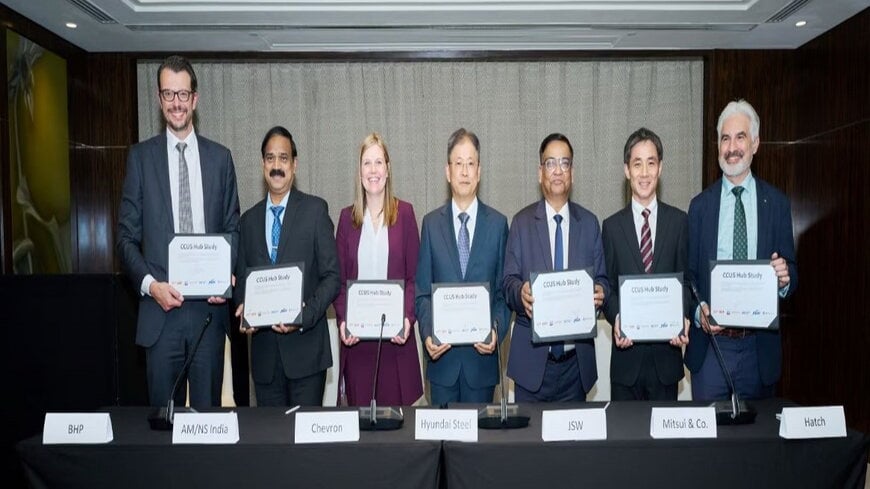www.industry-asia-pacific.com
12
'25
Written on Modified on
BHP and industry leaders launch CCUS hub study
BHP and other global industry leaders are launching a pre-feasibility study for CCUS hubs in Asia to accelerate decarbonisation in hard-to-abate industries.
www.bhp.com

An industry consortium comprised of leading steelmakers ArcelorMittal Nippon Steel India, JSW Steel, Hyundai Steel Company and other value chain players, BHP, Chevron, Mitsui & Co., Ltd. (the Consortium), are undertaking a pre-feasibility study to assess the development of Carbon Capture, Utilisation and Storage (CCUS) hubs across Asia.
The CCUS Hub study is the first independent industry-led study of its kind in Asia and will examine the technical and commercial pathways to utilising CCUS in hard-to-abate industries across Asia. The study will focus on the potential to develop large-scale projects which can repurpose, or store, captured carbon dioxide (CO2).
By leveraging shared infrastructure and economies of scale, the study will seek potential applications for captured CO2 in industrial processes, or transport captured CO2 via pipeline or shipping to storage sites in Asia or Northern Australia.
The plan is for each participant in the study to be included in at least one hub, and the study will deliver conceptual development strategies for each hub including cost and schedule estimates, and potential commercialisation pathways.
The study will also look at non-technical enablers required to make CCUS hubs a reality, for example regulatory assessments including intra and inter-regional assessments of CCUS and cross border transport.
The Consortium, which is open to additional members joining and contributing to the study, has appointed Hatch as Project Management Officer in collaboration with Global CCS Institute, McDaniel, and Pace CCS.
The study is expected to conclude at the end of 2026, with findings to be shared publicly to promote broader industry learning and support the development of enabling policy and regulatory frameworks.
A role for CCUS is well represented in a number of external global climatic scenarios. Carbon capture technologies used in a range of existing industrial applications are relatively mature, and able to integrate with existing facilities.
The Consortium is prioritising the next important step – the study of scalable utilisation and storage solutions to test the potential for broader adoption to support decarbonisation, especially in regions where regulatory hurdles and market maturity limit progress.
By concentrating on regional hubs, the Consortium’s study will look to find ways to solve the challenge of scale by aggregating captured carbon into sufficiently large quantities to:
- Optimise the unit cost of capture, transportation, and storage through economies-of-scale
- Provide sufficient scale for economic utilisation solutions
- Unlock novel solutions for multiple hard-to-abate industries at once, to enable regional decarbonisation efforts to be accelerated, and/or
- Ensure cost and risk is appropriately shared among interested parties.

